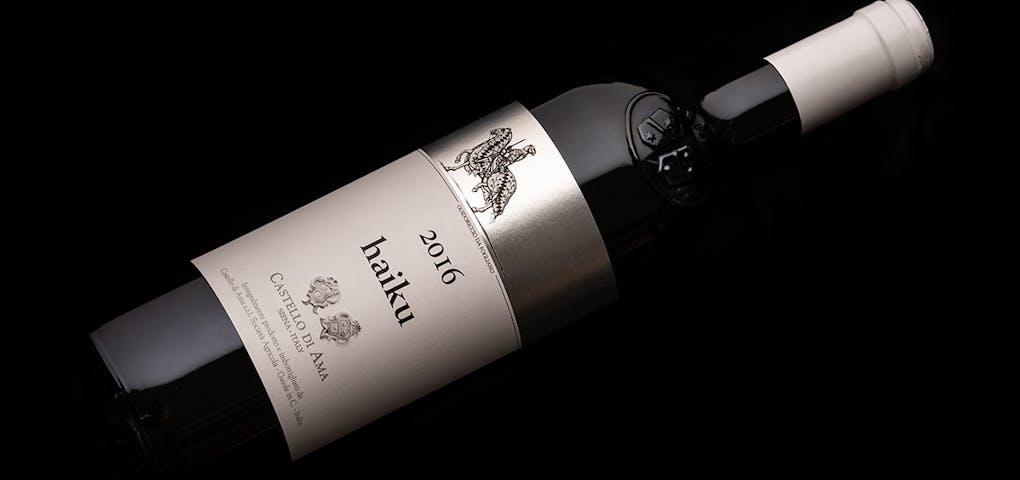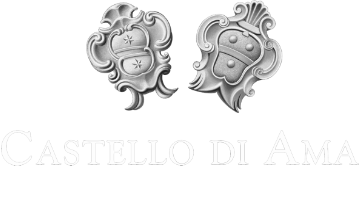Haiku is a new wine that embraces those principles of honesty, depth, simplicity and naturalness that characterize the entire production of Castello di Ama.
The name comes from a traditional Haiku poem originating in Japan consists of three lines. It 'a poem by simple tones without any title, the world's shortest eliminating frills lexical and draws its strength from the
suggestions of nature and the seasons. Given its brevity, the composition requires a great synthesis of thought and image.
Our hills are for us the score on which Nature has given the notes of a symphony orchestra that we represent with our wine Castello di Ama Docg Chianti Classico. Haiku it sets out its transcription with an "organic varieties" slightly different, an "alter ego" real "other self".
Haiku expresses in a different language, reduced to its essentials, the vital energy of the place, is the testimony of a vision of wine made in the terroir of Ama that goes beyond the classical schemes.
The knight stylized Guidoriccio da Fogliano, stems from the fresco by Simone Martini and rooted in tradition. Haiku label leaves the center position and took his first steps into the future.
The band has mirrored the meaning of the label to stimulate self-awareness of the taster, as an indispensable partner for the appreciation of wine.
The choice of black writing on white paper suggests the complementary of opposites, such as summer and winter. East and West or indeed, the wines Castello di Ama and Haiku.
Haiku 2009 is the result of blending between these three varieties: 50% is the Sangiovese and the rest has split between Cabernet Franc and Merlot.
During the second part of the plant Montebuoni Vineyard began in 1997 and ended in 2001, it was decided to experiment a noble international variety, Cabernet Franc hitherto unused to Ama but, after a careful analysis of soil and climate, it was assumed could give good results.
Were planted in 2001 numbered two small parcels in the land business with the numbers 84 (ha 1.47) and 85 (ha 0.47) for a total area of two acres with the clone 214, in Bordeaux appreciated for its ability to produce "vins de garde "on 110R rootstock.

